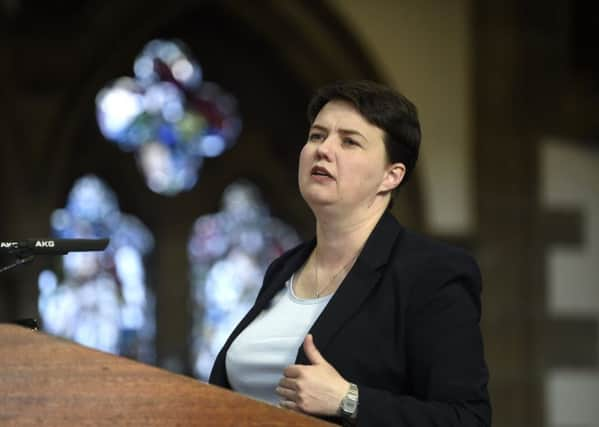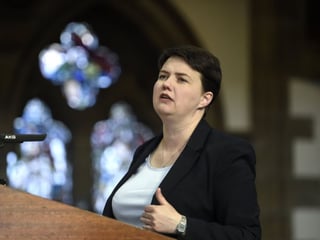How Ruth Davidson became a Tory leadership contender


That is partly because we are coming into the traditional summer ‘silly season’ when political writers are struggling for stories, but also because there is undeniably momentum behind two very different candidates.
Jacob Rees-Mogg, the hard Brexiteer, has broken ranks with the Prime Minister multiple times on the EU in the past few months, and is the current bookmaker’s favourite to take over from Theresa May.
Advertisement
Hide AdAdvertisement
Hide AdLike Mr Rees-Mogg, Scottish leader Ruth Davidson denies any immediate leadership ambitions, but she hasn’t ruled out a bid for the top job in future.
Ms Davidson, however, has become the darling not only of media commentators at Westminster, but among many, mainly pro-remain, MPs.
We look at how and why that came about.
Brexit dividend?
While the Scottish Tory leader has enjoyed a relatively high profile (at least compared to her predecessors) since taking over in 2011, it was a pair of constitutional referendums that arguably gave Ruth Davidson her big break.
The Edinburgh Central MSP showed she wasn’t afraid of a big stage when she (along with controversial former MP George Galloway) represented the anti-independence campaign at a 2014 debate in front of thousands of teenagers at the Hydro in Glasgow.
Her big introduction to a UK-wide audience, however, came at the tail end of the EU referendum campaign in 2016.
She was the star turn at an eve-of-poll debate representing the Remain campaign, where she challenged Brexit leader Boris Johnson on some of his more outlandish claims.
Tory MPs, used to treating the former London Mayor with kid gloves to avoid alienating his supporters, were pleasantly surprised to see Ms Davidson take him on directly, accusing Mr Johnson of ‘peddling lies’.
Many of those MPs still see Ms Davidson as the acceptable face of the Remain campaign even as the party seeks to unite behind a Brexit vision that has thus far seemed muddled at best.
Winning over the media
Advertisement
Hide AdAdvertisement
Hide AdEven in these straitened times for ‘old media’ – winning over Westminster lobby journalists is a crucial step for potential Tory leadership candidates.
So it has proved for Ms Davidson, the subject of fulsome praise in publications ranging from The Spectator and the Telegraph to The New Statesman and The Guardian.
Ms Davidson has also sought to avoid having her profile tied to politics, with an appearance on The Great British Bake Off and a Twitter account dedicated to ‘mostly personal musings’ helping ensure many see her as a politician with a life outside of politics.
An affable style at public events and interviews is almost certainly contributing in no small part to her current exalted status with many London-based journalists.
Whether that positive opinion is cutting through outside the ‘Westminster bubble’, however, remains to be seen.
Success breeds success
Despite all the external forces, and a perceived lack of quality candidates, much of the reason for Ruth Davidson being touted as a potential Prime Minister is simply her electoral success.
Ms Davidson has fought just one Holyrood election campaign, in 2016, since her elevation to the Scottish Tory leadership, but it was certainly a success for her party.
While not winning power at the Scottish Parliament (still nigh-impossible for the Scottish Conservatives to achieve), Ms Davidson more than doubled her number of MSPs.
Advertisement
Hide AdAdvertisement
Hide AdShe was also front and centre of the Scottish Conservatives campaign at the snap general election of last year, which saw the party go from just a single MP to 13.
Ms Davidson still insists that her plan is to stay and fight the next Holyrood election in 2021, and it still seems implausible that she will pursue a career at Westminster before then.
A lot can change in three years, however, as Ruth Davidson knows, and she could yet find herself answering her party’s call sooner rather than later.
